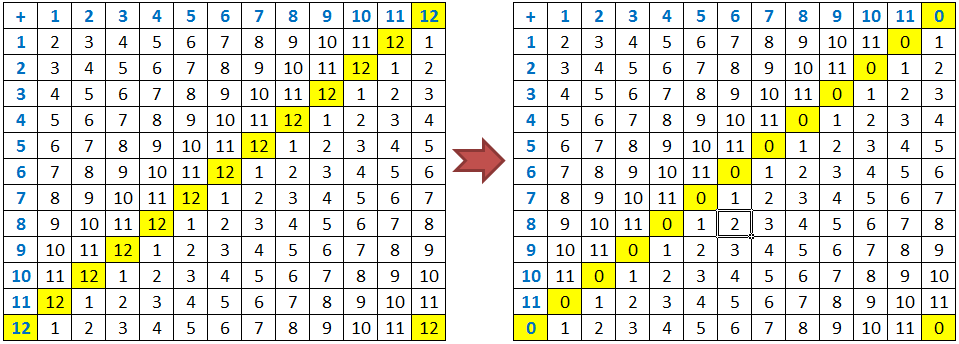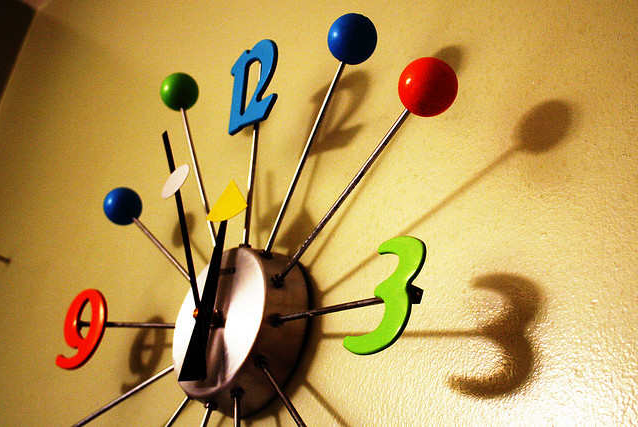Clock Arithmetic and Modular Systems Part 2
This is the second part of the Introduction to Modular Systems Series. Please read the first part before proceeding.
Last Monday, we have learned a number system that uses numbers on the 12-hour analog clock. We have performed addition using these numbers and discovered that in that system, 12 behaves like 0. We have also observed that to add large numbers, we need to divide the number by 12 and get the remainder.
Recreating the table by replacing 12 with 0 gives us the second table in the figure above. As we can see, in this new number system, we have digits 0 through 11 as opposed 0 through 9 in the number system that we use everyday (the decimal number system).
In this new system, we have observed that there is a certain number where numbers wrap around. The wrap around number is called the modulo. The modulo of our “clock number system” is 12, so we call it modulo 12. » Read more

